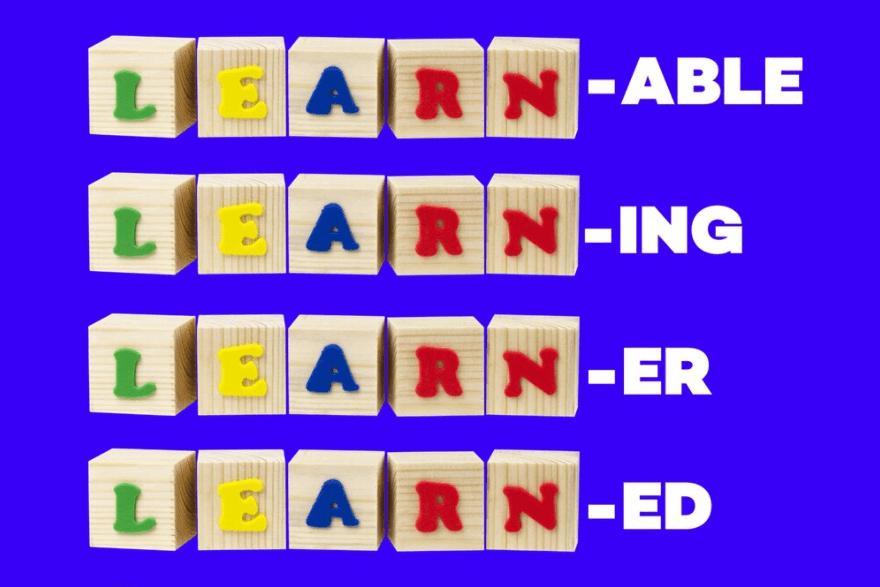
Sometimes it feels like all those phonics rules never end! But the silver lining is that there is rhyme and reason for almost every spelling rule out there–keyword, almost. And when it comes to adding suffixes to words and all the rules involved, there’s no exception. What are the suffix rules kids need to learn in order to successfully master this crucial leap in their phonics journey?
Before we explain the most important rules, keep these two definitions in mind:
a vowel suffix = any suffix that starts with a vowel
a consonant suffix = any suffix that starts with a consonant
Rules for Adding Suffixes
When to just add a suffix
When adding a consonant suffix to a root word that itself ends in a consonant, just add on the suffix! Examples include joyful, quickly, and fearless.
Dropping the ‘e’
When we add a vowel suffix to a base word ending in a silent e, we generally drop the e. Examples of this include hoping, usable, and driver.
When to keep the final E
As with every phonics rule, there are always exceptions. One exception to the final e rule is when the base word ends in “ce” or “ge.” In these cases, the final e stays, but only if the suffix starts with a or o! Examples include courageous, serviceable, and outrageous.
The final e also stays when the root word ends in ‘ee’ or ‘ye,’ like in the words agreeable and eyeing.
Another exception is for the suffix -ly, as in the words lately and definitely.
Finally, the following words are also exceptions to the above ‘drop the e’ rule: likeable, sizeable, careful, useful, and peaceful.
Adding -s or -es
When determining whether to add an -s or an -es, it depends on the last sound of the root word. Words that end in ch, sh, s, x, or z get -es. For all other words, just add an -s. Examples include foxes, bushes, and churches.
Doubling the last consonant
When you add a suffix to a root word that ends in a short vowel followed by a single consonant, that consonant gets doubled. Here are some examples of both words that would and would not get doubled: flip-ped, trap-ping, clip-per versus jump-ing, sing-er, and smiled.
In Conclusion
While these suffix rules are an important part of the phonics puzzle, it bears repeating: there are exceptions to every rule. These should not be thought of as strict rules, but rather guidelines to help students make a little more sense of this complex language.




